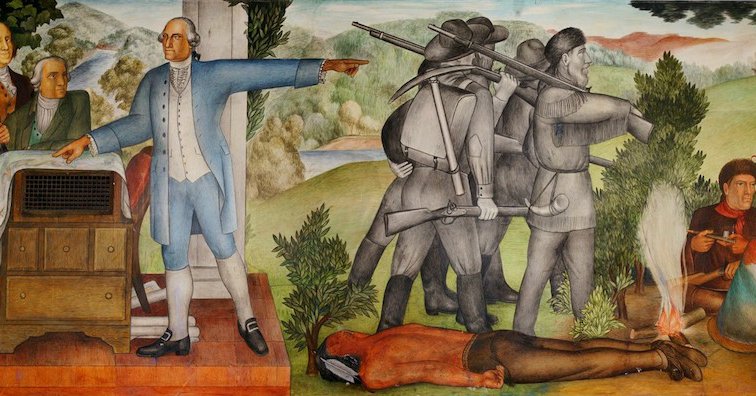
It could be argued that contemporary identity politics on right and left responds to what Mark Fisher calls the “slow cancellation of the future,” with a zealous, quasi-religious search for meaning that places critical reason in question.
To understand such a search we might look at Theodor W. Adorno’s critique of Martin Heidegger’s “jargon of authenticity.” Adorno argues that the impulse towards authenticity reveals a desire for an elusive form of concreteness in a world increasingly governed by the rule of abstraction.
The young Nietzsche, in On “Truth and Lies in a Non-moral Sense”, discusses ideal abstractions as a way of conceptualising a given object by extracting the most general predicates of particular examples of that object. And this act of extraction is precisely an act of abstraction.
Adorno suggests that Heidegger’s thought responds in this context to the need generated by a discipline of philosophy that has come to displace the question of the what with that of the how. It has displaced fundamental questions such as the nature of justice or the good life with questions of how philosophical language is itself possible.
Adorno’s critique is especially resonant today insofar as he was writing in the context of the West German Wirtschaftswunder or “economic miracle” that saw the country in addition to Japan challenge the global economic dominance of the US. The vaunted Wirtschaftswunder was forerunner to the neo-liberalism that has become hegemonic since the mid-1970s, first in the Anglo-American world and later globally. This was called “ordo-liberalism.”
Ordo-liberalism, according to Werner Bonefeld, aims at a harmonious social order constituted by a free economy or ORDO, meaning cosmos. This, Bonefeld explains, is “an essential correspondence, some consonance and adequacy between the presumed essence of Man, the freedom to compete, on the one hand, and the world, the structure of being, on the other. ORDO ‘accords with reason’ in that it combines the nature of man with the social structure.”
The West German social market economy was premised upon the idea that its participants were not (potentially) rebellious workers but rather “entrepreneurs of themselves” (Foucault) who accepted and indeed internalized the rules of the (capitalist) game rather than struggling against them through acts of solidarity. Ordo-liberalism, therefore, created an order in which workers became ever more isolated from one another – an order in which abstraction ruled.
Adorno argues that, in his very attempt to move beyond the abstractions of philosophy, Heidegger re-inscribes such abstraction: he places the existential experience of the unity of time, past, present and future, above a materialist understanding of history. Like Kierkegaard and Husserl before him, Heidegger’s drive towards the concrete misfires and the subject is thrown back on itself in its utter abstractness.
Contemporary identity politics can be seen as responding to the deepening spread of this logic of abstraction in terms of an attempt to grasp the concrete through a recourse to the immediacy of experience untempered by critical reflection. The common denominator, here, on the right and the left is a kind of intellectual anti-intellectualism.
A case could be made that in the return of collective forms of identity there is a certain sort of appeal to supposedly irreducible and singular modes of historical being: a nostalgic view of America when it was “great,” a restoration of the Caliphate in Turkey, Modi’s dream of Hindutva and so forth.
Can a very different yet parallel logic be discerned on the left – one that fundamentally short-circuits what Hegel called the critical labour of the negative?
As I’ve noted elsewhere, a certain left-wing authoritarian claim to authenticity can be seen at work within the art world. For example, it can be discerned in the successful campaign to have Communist artist and friend of Diego Rivera and Frida Kahlo, Victor Arnautoff’s Washington Mural in San Francisco covered over because it was said to be too deeply upsetting to the Indigenous and African communities it depicts. It is present as well in Hannah Black’s demand that Dana Schutz’s painting of Emmett Till simply entitled Open Casket (2017) be destroyed because the former had no “right” to black suffering.
In other words, as an answer to the domination of the abstract, we see recourse to the criteria of authentic/inauthentic, rather than true/false. (The latter criteria, of course, could be said to only perpetuate the rule of abstraction.) This means that the artwork in its sensuous materiality is placed beyond the purview of experience and rational adjudication, which is to say, criticism. Insofar as the criterion of “authenticity” supplants that of truth, the question of the “who” of the artist displaces the questions of the “what” and the “how” of the objectivity of the artwork itself.
This piece was originally published in the May edition of Splinters.
PrintSamir Gandesha | Radio Free (2021-05-05T11:41:05+00:00) The jargon of identity. Retrieved from https://www.radiofree.org/2021/05/05/the-jargon-of-identity/
Please log in to upload a file.
There are no updates yet.
Click the Upload button above to add an update.